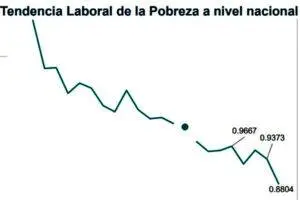Stephen Hawking y el cofundador de Apple Steve Wozniak, entre otros científicos y expertos en tecnología, alertaron sobre una carrera armamentística global de armas que emplean inteligencia artificial.
Regeneración, 27 de julio del 2015. En carta abierta, firmada por cientos de personas, expertos en ciencia y tecnología que alertan, que si cualquier potencia militar importante sigue adelante con el desarrollo de armas autónomas, «una carrera armamentística global es prácticamente inevitable, y el punto final de esta trayectoria tecnológica es obvio: las armas autónomas se convertirán en los Kalashnikov del mañana».
Los expertos que han bautizado como «robots asesinos», a dispositivos inteligentes, que a diferencia de las armas nucleares, no requerirán materia prima costosa o difícil de obtener, lo cual permitirá su fabricación en masa.
«Será cuestión de tiempo para que aparezcan en el mercado negro y en manos de terroristas, dictadores que quieren incrementar el control de su población, caudillos que desean perpetrar limpieza étnica», señala la carta de científicos. Los firmantes, que incluyen personalidades reconocidas del mundo académico, el ámbito empresarial, filósofos, historiadores, sociólogos, genetistas y otros profesionales, que estudian la inteligencia artificial, afirman que la idea de que los sistemas computarizados pueden realizar tareas que requieren inteligencia humana, tales como traducción de idiomas o percepción visual. Pero también podrían hacer “el trabajo “sucio” de los dictadores.
Entre los firmantes, se incluyen Elon Musk, director general de Tesla Motors; Demis Hassabis, fundador de Google DeepMind, y el lingüista Noam Chomsky, profesor emérito del Instituto Tecnológico de Massachusetts (MIT).
«Por eso creemos que una carrera armamentista militar con Inteligencia Artificial no beneficiaría a la humanidad», concluye la carta.
Aunque señalan que «hay muchas maneras que la Inteligencia Artificial puede volver el campo de batalla más seguro para los seres humanos, en particular los civiles, sin crear nuevas herramientas para matar gente».
Carta abierta (texto original-inglés):
IJCAI 2015 conference on July 28
Autonomous Weapons: an Open Letter from AI & Robotics Researchers
Autonomous weapons select and engage targets without human intervention. They might include, for example, armed quadcopters that can search for and eliminate people meeting certain pre-defined criteria, but do not include cruise missiles or remotely piloted drones for which humans make all targeting decisions. Artificial Intelligence (AI) technology has reached a point where the deployment of such systems is — practically if not legally — feasible within years, not decades, and the stakes are high: autonomous weapons have been described as the third revolution in warfare, after gunpowder and nuclear arms.
Many arguments have been made for and against autonomous weapons, for example that replacing human soldiers by machines is good by reducing casualties for the owner but bad by thereby lowering the threshold for going to battle. The key question for humanity today is whether to start a global AI arms race or to prevent it from starting. If any major military power pushes ahead with AI weapon development, a global arms race is virtually inevitable, and the endpoint of this technological trajectory is obvious: autonomous weapons will become the Kalashnikovs of tomorrow. Unlike nuclear weapons, they require no costly or hard-to-obtain raw materials, so they will become ubiquitous and cheap for all significant military powers to mass-produce. It will only be a matter of time until they appear on the black market and in the hands of terrorists, dictators wishing to better control their populace, warlords wishing to perpetrate ethnic cleansing, etc. Autonomous weapons are ideal for tasks such as assassinations, destabilizing nations, subduing populations and selectively killing a particular ethnic group. We therefore believe that a military AI arms race would not be beneficial for humanity. There are many ways in which AI can make battlefields safer for humans, especially civilians, without creating new tools for killing people.
Just as most chemists and biologists have no interest in building chemical or biological weapons, most AI researchers have no interest in building AI weapons — and do not want others to tarnish their field by doing so, potentially creating a major public backlash against AI that curtails its future societal benefits. Indeed, chemists and biologists have broadly supported international agreements that have successfully prohibited chemical and biological weapons, just as most physicists supported the treaties banning space-based nuclear weapons and blinding laser weapons.
In summary, we believe that AI has great potential to benefit humanity in many ways, and that the goal of the field should be to do so. Starting a military AI arms race is a bad idea, and should be prevented by a ban on offensive autonomous weapons beyond meaningful human control.
La carta abierta, incluye: 10276 firmantes
Enlace carta: (http://futureoflife.org/AI/open_letter_autonomous_weapons#signatories)
Con información de: Associated Press y Agence France-Presse e International Joint Conference on Artificial Intelligence 280715











